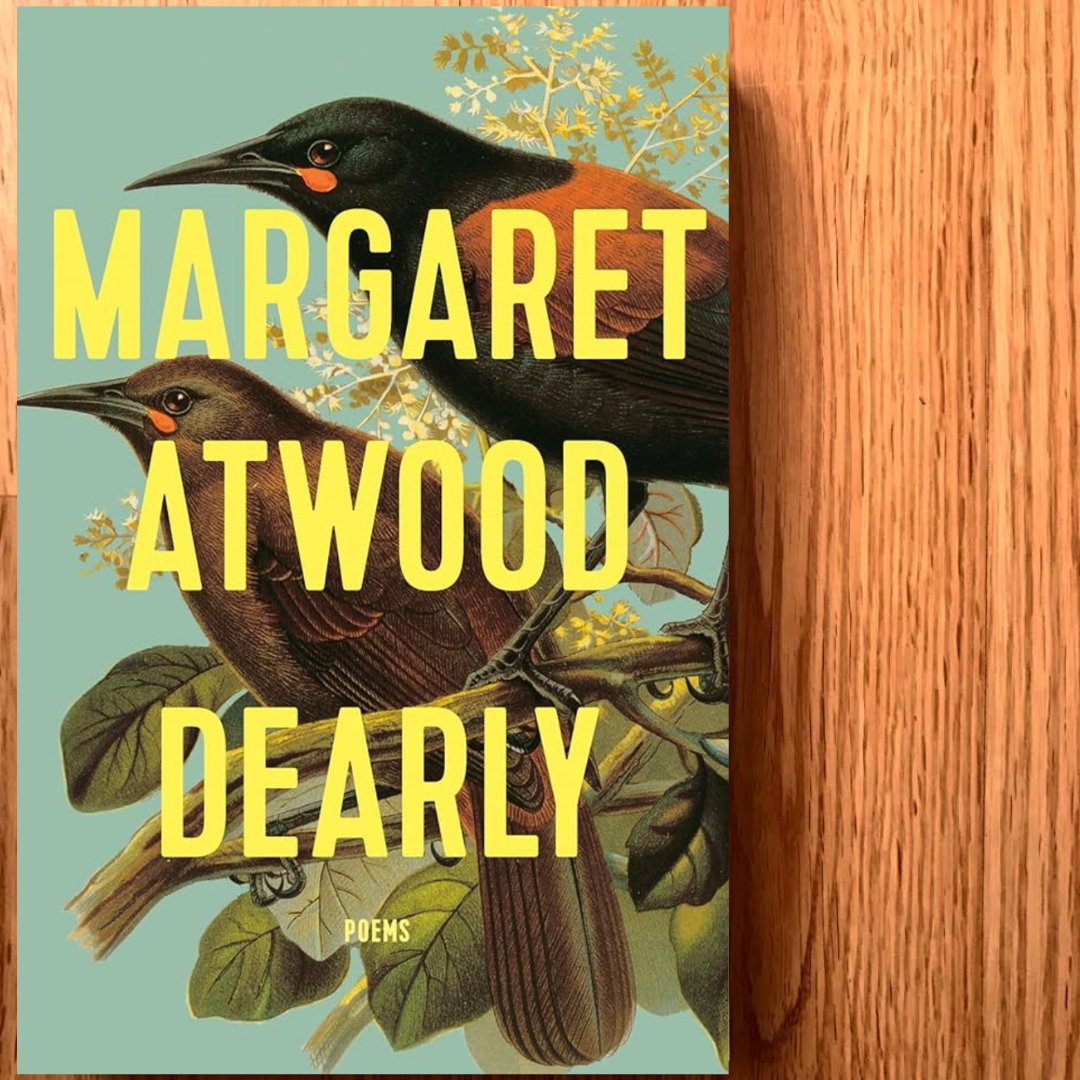By Sara Hailstone
Margaret Atwood shifted the conversation of poetry with her four-line poem “You Fit into Me,” published in 1971. With the entrance of her image of a fisheye and hook into a collective literary consciousness, Atwood set the bar for her poetic compositions. With the recent publication of her collection of poetry Dearly, the world received poetry from Atwood for the first time in over a decade. Expectations were high. There have been mixed reviews. Some reviewers deem that with this recent book of poetry Atwood’s writing has fallen “short of [the] mark”; some take issue with the unsettling tone of the topical movement throughout the pieces; an impression of “the rapidity of writing,” that the pieces came to press too soon; that there is a lack of editing; or more significantly, that the pieces in Dearly signal an “inevitable decline in the work” of one of Canada’s most looked-to authors.
I did not feel disquieted by this set of poetry, rather, I felt inspired. I needed to read through the sadness and personal loss, a human layer laid down by an almost untouchable Canadian author. As a woman, her transparency of the aging process is also a necessary scope of voice needed for society, especially to give voice to representation of the female body that is not traditionally spoken of. “Things wear out. Also fingers./ Gnarling sets in./ Your hands crouch in their mittens, forget chopsticks, and buttons./ Feet have their own agendas.” And the tone of a dystopic writer seeps in: “Ears are superfluous:/ What are they for, those alien pink flaps?/ Skull fungus./ The body, once your accomplice, is now your trap.” An aging body that seeks calm, “a flat line you steer for.” We need to hear the language women have about their bodies and the conversations they have with them. This language takes back power while allowing women to be vulnerable. There is strength in that sensitivity. The world needs sensitivity now. The world needs authenticity. The world needs authentic art.
Atwood’s literary canon is weighed heavily. Some will omit Dearly from the list of best Atwoodian works. I argue to leave it in. Do not overlook it. Ironic would be becoming footnoted in your own repertoire.

